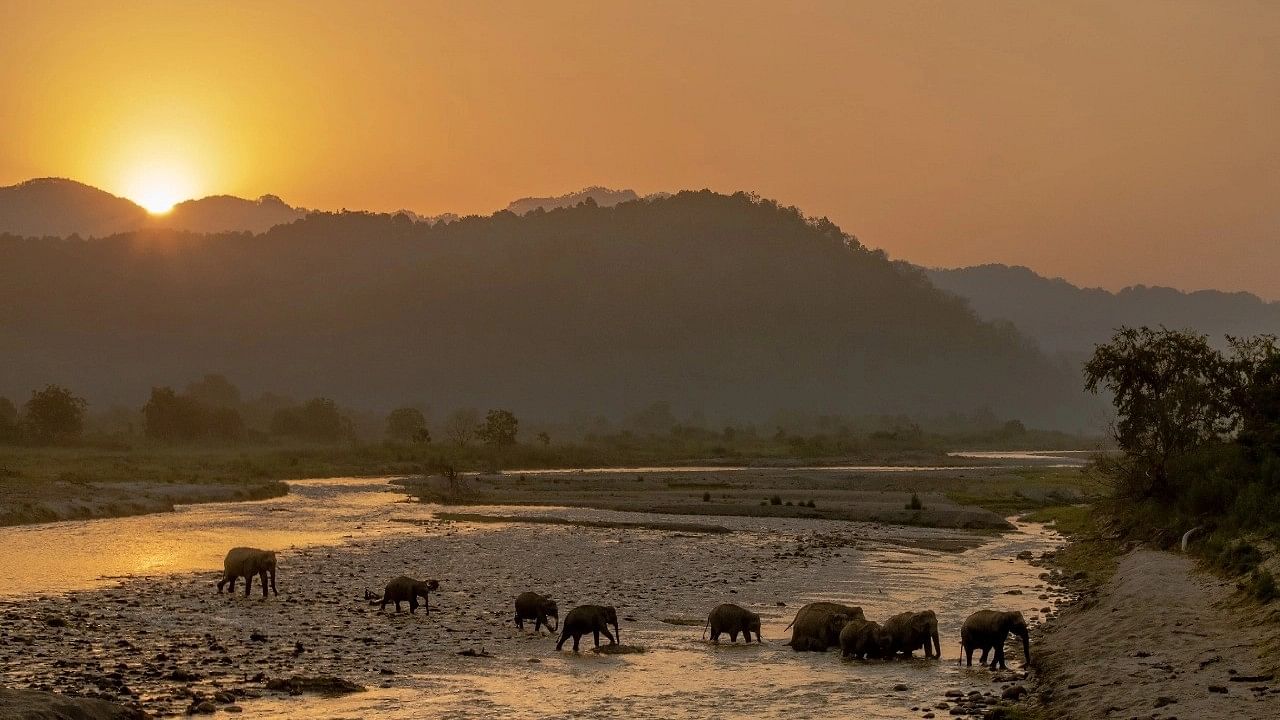
Representative image of a forest.
Credit: DH Pool Photo
Seven officials of the forest department were awarded the “Prakruthi Mithra” award, for their significant role in environmental and wildlife conservation, at the Srishti Sambhrama festival organised by BNM Institute of Technology in collaboration with Heritage Trust.
The awardees included range forest officers, deputy range forest officers, forest patrol wardens, vehicle drivers and animal welfare officers.
They were awarded for their various crusades in recovering encroached forest lands, dismantling wildlife trafficking networks, conservation and propagation of rare endangered species, conducting awareness programs, ensuring reduction of man-animal conflicts, demonstrating effective fire management strategies and actively supporting eco-tourism activities, among others.
Saswati Mishra, Additional Principal Chief Conservator of Forest (Vigilance), Karnataka Forest Department, expressed her pride in the ethos of conservation that India as a society has.
She appreciated the measures taken by the previous leaders of the nation in formulating several policies and laws to protect the wildlife and forests.
She also elaborated on the challenges that the forest department faces in their task of protecting the wildlife. “There is always a question of conservation versus development,” she said.
Forest officers are sometimes labelled as “environmental terrorists” for discouraging developmental projects that may potentially harm the wildlife, she added.
In his keynote address, Praveen Bhargav, a conservationist, debunked the myth of compensatory afforestation, stating that plantation efforts cannot truly substitute for natural forests.
He said, “This country is being led to believe that simply planting a tree can remedy the loss and fragmentation of forests.”
He emphasised the role of an active protection mechanism to be in place for environment conservation.
Bhargav also highlighted the rights and duties of the Indian citizens that facilitate the cause of conservation. “In a democratic country like ours, citizens have extensive powers and rights under the Constitution,” he said.
A paradigm shift to landscape conservation policy, public participation using constitutional rights, development of precautionary principles and inter-generational equity doctrine, are the way forward to environment conservation and wildlife protection, he said.
The program also included an exhibition of photographs by wildlife photographers S P Nagendra and Prof Eishwar N Maanay, Trustee, Dean, BNMIT.